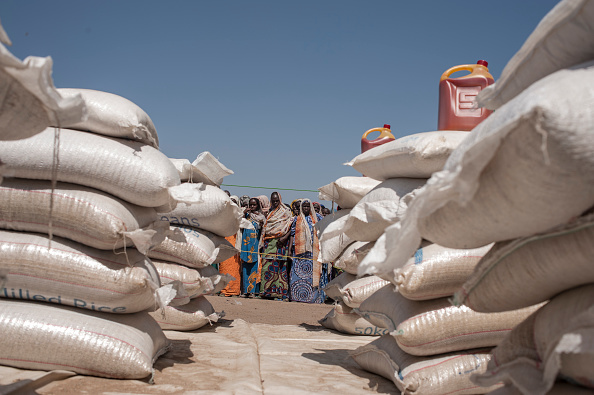Abuja – The governor of northeast Nigeria’s Borno state has banned food and aid distributions to tens of thousands of people who were displaced by conflict, a move condemned on Thursday by humanitarian workers.
The region, affected by a 12-year-old jihadist insurgency, has 2.4 million people living in food crisis “or worse”, according to the UN, which projects the number will rise to 3.5 million next year.
In a letter seen by AFP, Borno’s governor Babagana Umara Zulum has written to “all humanitarian and development partners” to spell out the ban.
“No partner organisation, either local, national or international, shall henceforth be allowed to embark on distribution of food and non-food items in any of our newly resettled communities across the state,” says the letter dated Monday.
ALSO READ | At least 7 women crushed to death in Nigeria aid handout
The measure has a potential impact on large numbers of people who had previously lived in camps for internally displaced people (IDPs).
They left the camps under a government policy launched in 2018 to encourage “voluntary return, resettlement and reintegration.”
Many were moved by the government into fortified garrison towns in their districts of origin.
NGO workers say food insecurity in these resettled areas is high, and hunger will worsen as a result of the ban.
The governor’s spokesman, Isa Gusau, confirmed to AFP by email that the letter was authentic.
Food insecurity
The goal, the governor said, is “to (wean) people off humanitarian food distribution and instead replace (it) with empowering people and giving them dignity to buy their own food and determine their future.”
Aid workers in Nigeria who help to provide assistance to more than eight million people in need told AFP they were worried about the measure.
How many people are affected by the ban is unclear, but NGO-provided data says at least 86,000 people have so far left camps in Maiduguri alone.
In areas where people have resettled, “access to land is unknown and from now to the next harvest, we are wondering how they will survive,” said a senior international NGO official who requested anonymity.
“Sending back people in food-insecure areas and cutting them for any assistance contradicts the Kampala convention,” the official added.
ALSO READ | At least 12 million children ‘ traumatised and afraid’ to go to school in Nigeria, says Buhari
The Kampala convention is the world’s only international treaty that binds governments to provide legal protection to IDPs.
“Food security and nutrition indicators across Borno state remain a major source of concern,” said Camilla Corradin, spokeswoman for the INGO Forum in Nigeria.
The organisation gathers international charities such as the International Rescue Committee, the Norwegian Refugee Council and 52 others.
“We call on all actors to ensure that, while self-reliance can be developed, food and other relevant humanitarian assistance can continue to reach those in need,” Corradin added.
If access to life-saving support is not sufficiently scaled up, the UN warned in October, another 13,551 people are anticipated to experience “catastrophe-like conditions.”
The measure does not affect food distribution in IDP camps, the governor’s letter said.
Follow African Insider on Facebook, Twitter and Instagram
Source: AFP
Picture: Getty Images
For more African news, visit Africaninsider.com


